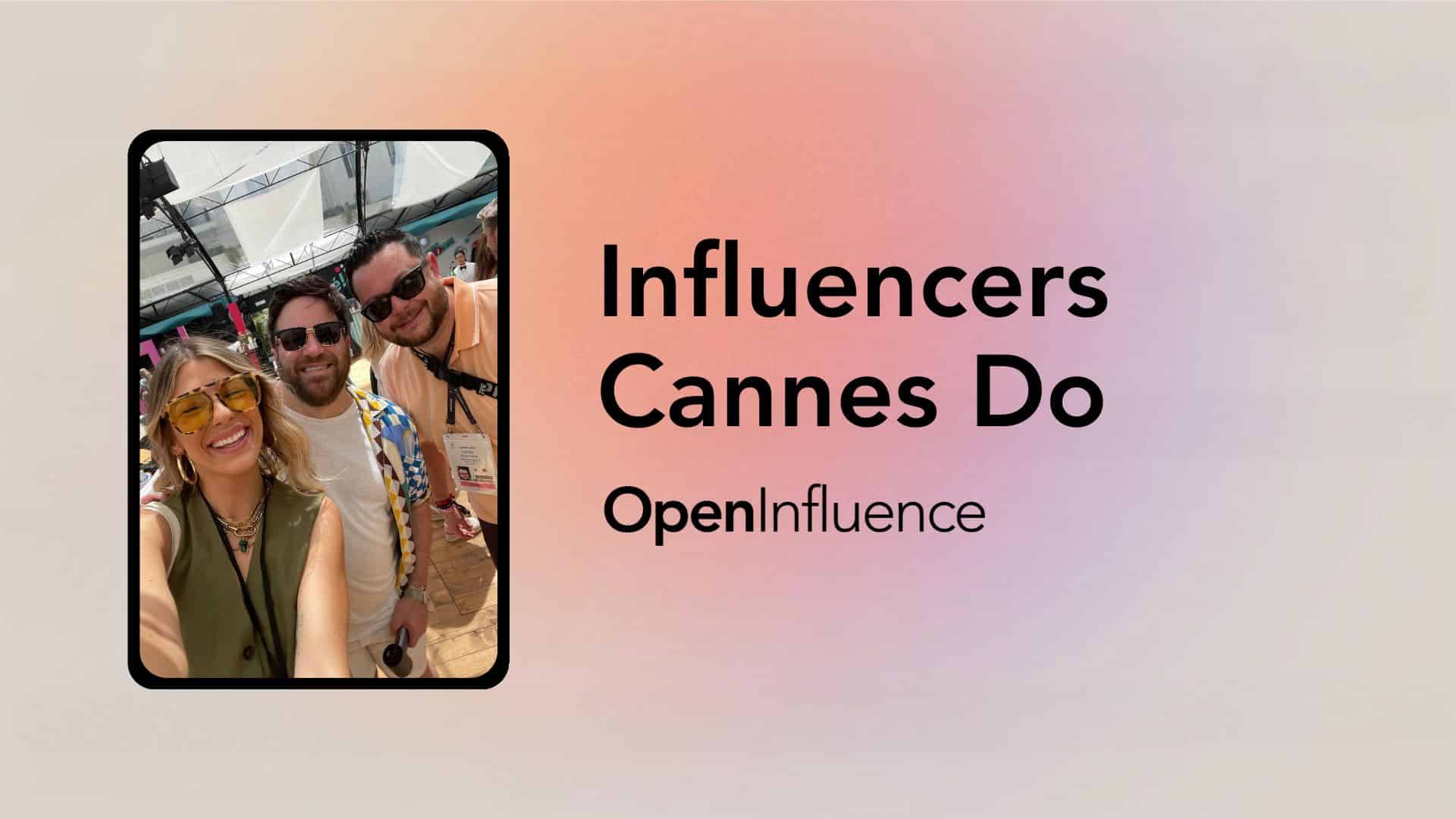Creators and influencers are no strangers to the Boulevard de la Croisette along the shore of the Mediterranean in Cannes, France, during the annual Cannes Lions International Festival of Creativity.
The event added Social & Influencer Lions to its roster of awards in 2018, with 2,027 entries and 67 winners, and Open Influence Senior Director of Marketing and Communications Maria Rodriguez believes “the category’s relevance was firmly established” as a result.
The category’s relevance was even more firmly established at the recently concluded 2024 edition of Cannes Lions, as the event’s organizers incorporated Lions Creators, a series of events based on the creator economy, which Goldman Sachs pegged as a $250 billion industry last year, potentially reaching $480 billion by 2027.
Vice President of Events, Lions Thea Skelton told Marketing Brew, “We noticed growth in (creators’) presence at the festival over the last few years,” adding that brands and creators both expressed an interest in having a place to connect.
“The feedback that we’ve had so far is actually very positive that we are bringing it to the festival because there isn’t really this type of meeting place for the creator community anywhere else currently,” she said.
CEO, Lions Simon Cook said in the announcement introducing Lions Creators, “With potential growth of this scale, it’s crucial that the festival plays a role in bringing together the platforms, the brands, the creators and the agencies, and a wider cross-section of the industry to have the most pressing conversations around how we co-create, collaborate, and unlock greater value and progress for the wider industry in this space.”
Cook told ADWEEK, “We also uncovered a lack of understanding when it comes to the creator economy—agencies face challenges dealing with brands that don’t ‘get’ the creator world, while content creators feel that brands do not fully understand the extent of what they do and how powerful it can be for them.”
Highlights of Lions Creators included a series of roundtable discussions bringing together agencies, brands, creators, platforms, and other relevant parties, as well as the Social & Influencer Lions Awards Show.
Overheard on the Beach at Cannes
“One of my key takeaways from Cannes this year is how front and center the creator economy has become,” Open Influence Vice President of Strategic Partnerships Lenny Shteynberg said. “A whole new area dedicated exclusively to the creator economy, with speakers and an agenda that specifically addresses the growing sector. I have also seen many panels over the week discussing creator marketing and witnessed lots of creators in attendance.”
Gillian Follett of Ad Age pointed out several of those influencers, noting content such as Get Ready With Me videos, photos, and podcast episodes from the likes of Jackie Aina, Alix Earle, Harry Jowsey, and Tefi Pessoa.
Follett also noted Paris Hilton playing creator Megan Boni’s TikTok-viral “Man in Finance” song during a DJ set, but that wasn’t the most noteworthy thing Hilton did during the festival.
She sort of took credit for the metaverse during a session at ADWEEK House titled, “The Creator Economy and the New World of Creativity,” where Hilton was joined by TikTok influencer-turned-digital educator Kahlil Greene and Reality Labs Global Marketing VP Shachar Scott.
“I was thinking about the metaverse before there was even a name for it,” Hilton said, adding that she was DJing at electronic dance music party Amnesia Ibiza EDM in 2017 when she found herself wishing people without the time or money to fly to Spain could still participate in the festivities, envisioning a platform called Club Paris.
“People could come in from around the world,” she added. “You could buy a table, order sparklers, (buy) all these digital outfits. But the technology just hadn’t caught up with me at this point.”
Greene noted, “If you’re not authentic, people don’t want to follow you. There are a lot of celebrities who haven’t been able to keep up, because that inauthenticity has been very glaring in a lot of their work.”
A more prominent presences at Cannes by brands such as Amazon and Eos was also called out by Follett, adding that retail colossus Amazon collaborated with one-dozen creators at the event, with many posting sponsored Instagram Stories, while skincare brand EOS teamed up with UTA Next Gen to host six influencers.
Linktree Senior VP of Creators and Community Lara Cohen told Follett, “Cannes is sort of like the epicenter of marketing trends and the future of what’s happening in commerce. I think it makes a lot of sense that Cannes is leaning so heavily into creators, because so many brands have identified creators as sort of the ‘storefronts of the future.’”
Artificial intelligence is everywhere these days, including beach resorts on the French Riviera.
“There was a big focus on AI and how it will help make the industry more efficient to add to the human touch,” Open Influence Director of Partnerships Tommy Johnson said, “but as you know, we’ll always need humans.”
Rodriguez also noted the rise in influencer agencies using AI to boost content creation and productivity and tests of the technology by Google and Meta, adding, “But it’s not just the big players discussing AI. We will also see newer companies leveraging AI to tackle some of the industry’s most pressing challenges.”
Those newer companies include Open Influence partner SeeMeIndex, which discussed using responsible AI to help brands create inclusive marketing strategies.
Not all the sentiment regarding AI was positive, however, as Christina Najjar, better known as prominent creator Tinx, said during a panel hosted by Ad Age that AI is “coming for (creators’) jobs.”
Hearing From the Platforms
TikTok introduced Symphony Digital Avatars, two types of generative AI avatars based on real people, enabling brands to create multiple pieces of content at scale, in several languages, delivered in a personalized manner with lifelike expressions and gestures.
Stock Avatars are pre-built avatars created using paid actors and available for commercial use. Advertisers can give their campaigns a human touch through the diverse range of available backgrounds and nationalities, as well as more than 30 languages.
And Custom Avatars are crafted to represent brand spokespeople or creators, with support for multiple languages. TikTok explained in a blog post, “For creators, they can leverage their own likeness and construct multilingual avatars to expand their global reach and brand collaborations. For brands, not only can they build their own Custom Avatars with their brand intellectual property, spokesperson or a partnered creator, they can now easily work with creators from around the world to help localize their global campaigns.”
Follett reported that TikTok brought several mega-creators to France, including Aina, Leo González, Pessoa, Josh Richards, and Markell Washington.
Snapchat, meanwhile, delivered influencers Savannah Demers, Nikki Lilly, and Tinx.
Facebook and Instagram parent Meta’s roster included Colin and Samir Show co-hosts Colin Rosenblum and Samir Chaudry, as well as Nadya Okamoto and Grace Wells.
Meta also introduced a host of new features across its family of applications at Cannes Lions.
Flagship messaging app Messenger now has an AI chat feature, built with Meta Llama 3, which will let businesses help customers get easier access to support and purchasing products.
New tools for Messenger are aimed at enabling businesses to create, organize and send paid marketing messages via the app.
And the application-programming interface for Instagram’s stand-alone Threads app will help businesses and creators share new content at scale.
The Threads API supports features including:
- The ability to authenticate, publish posts, and fetch content from the business via the API.
- Management capabilities letting businesses and creators retrieve and engage with replies to their posts, set reply controls, and hide or unhide specific replies.
- Media and account-level insights, such as number of views, likes, and replies.
AI was pinned atop Pinterest, as the platform introduced several tools for boosting creative and performance, as well as detailing brand safety updates.
New innovation program Pinterest Ad Labs lets select brands test prototypes of new creative and ad tools on the platform, including generative AI features powered by personalized insights.
Pinterest is testing personalized background generation, powered by a gen AI model that taps its visual search and taste graph.
Users of the platform already had the ability to create collages by cutting out, remixing, and reassembling visual elements, and Pinterest began testing collages for advertisers, letting them make their content more discoverable and shoppable by enabling them to tag products.
Pinterest Performance+, currently in closed beta, is a suite of automation and AI-powered tools aimed at helping advertisers build goal-based campaigns and boost performance.
Finally, the company worked with Integral Ad Science to provide brand safety measurement across all monetized markets, aligned to the Global Alliance for Responsible Media framework, as part of its Total Media Quality initiative.
X owner Elon Musk infamously used some not-safe-for-work terminology last November to chastise advertisers leaving the former Twitter, and Cannes Lions marked the start of an apology tour of sorts for Musk, who did not attend last year’s event.
Musk said at Cannes Lions that his vitriol was not aimed at all advertisers, just those pushing for censorship and looking to stifle free speech.
He also called X the most effective platform to reach the world’s influential leaders and claimed that “every third-party verification tool has given us an A+” regarding brand safety.
AI is a topic close to Musk’s heart, and he said at Cannes, “If AI can do everything you can do, but better, what’s the point of doing things? I think there will be an existential crisis. The most likely outcome is one of abundance, where goods and services are available to anyone. There’s no shortage for any one of us. It would be a universal hike. Work would be optional.”
Until Next June
“This was the first year that they had a creator track, so it was really nice to see the representation more mainstream,” Johnson said. “There was also a great showing of creators on the ground from all different walks of life, including events hosted by the LGBTQIA+ community. All the platforms had great activations, and people were tripping over each other to get into them and explore.”
And Shteynberg added, “I think this is the year that solidifies that the creator economy is not only here to stay but will continue to gain pace across media and culture.”
Open Influence’s team stays on top of the latest trends and is here to help you maximize your creator campaigns. Open Influence is a leading global creator marketing agency dedicated to creating engaging campaigns.

